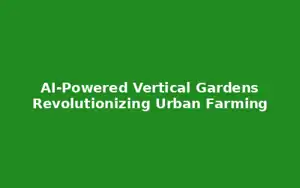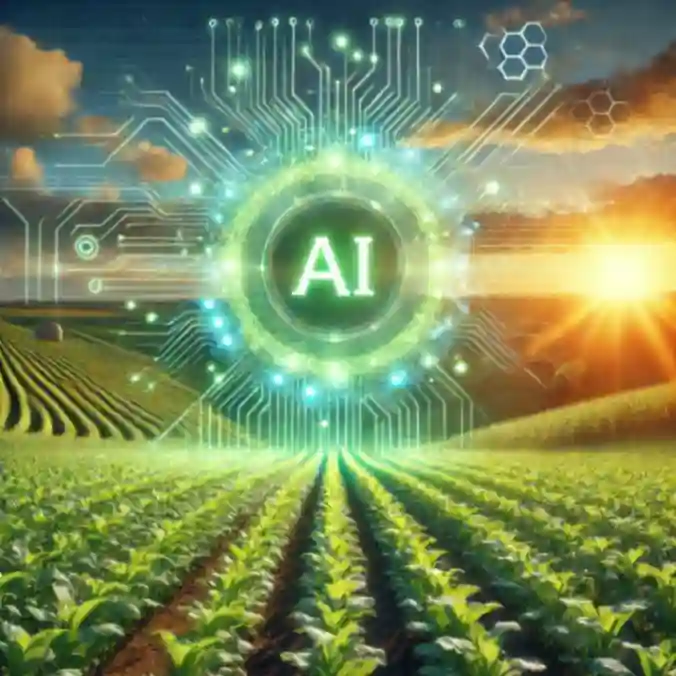
A cutting-edge technology company, Verdant Dynamics, has unveiled an innovative approach to urban agriculture by combining artificial intelligence (AI) with vertical gardening. This breakthrough promises to revolutionize how cities approach food sustainability, offering a glimpse into a greener, more self-sufficient future.
The Urban Agriculture Challenge
With urban populations growing at an unprecedented rate, traditional farming methods struggle to meet the demand for fresh, locally sourced produce. Verdant Dynamics aims to address this challenge with AIgro, an AI-driven vertical farming system capable of optimizing plant growth in compact urban spaces.
“Our mission is to redefine food production,” said company founder Elena Chavez at the product launch. “With AIgro, we’re empowering cities to produce their own fresh produce efficiently and sustainably, even in the heart of urban jungles.”
How AIgro Works
AIgro leverages machine learning algorithms to monitor and adjust key environmental factors in real-time, including light intensity, humidity, and nutrient delivery. The system integrates with modular vertical garden units that can be installed in residential buildings, schools, and even office spaces.
According to Chavez, the AI adapts to specific crops, learning their growth patterns and adjusting conditions to maximize yield. Early trials showed that the system could produce up to 40% more vegetables than conventional hydroponic systems while using 30% less water.
Sustainability at Its Core
The system is designed with sustainability in mind. Solar panels power the units, and the irrigation system recycles water to minimize waste. Additionally, AIgro’s app provides users with insights about their gardens, encouraging community engagement in urban farming initiatives.
Transforming Cities
Experts believe that AI-powered vertical gardens could transform urban landscapes, turning unused spaces like rooftops and parking lots into lush, productive farms.
“This technology has the potential to alleviate food deserts, reduce carbon footprints, and foster community resilience,” said Dr. Raj Patel, a sustainable agriculture expert at the University of California, Berkeley.
Looking Ahead
Verdant Dynamics plans to pilot AIgro in several U.S. cities, including New York, Chicago, and Los Angeles, by mid-2025. The company is also exploring partnerships with global NGOs to bring the technology to underserved communities worldwide.
“Urban farming is no longer a niche concept; it’s becoming a necessity,” Chavez concluded. “With AIgro, we’re planting the seeds for a healthier, more sustainable world.”
Public Reaction
The announcement has garnered significant attention online, with urban dwellers and environmentalists praising the innovation. Critics, however, have raised concerns about potential high costs and technological dependency. Verdant Dynamics has assured that they are working on scalable models to ensure accessibility for all income levels.
As cities continue to grapple with the challenges of climate change and food insecurity, AIgro represents a bold step forward in reimagining agriculture for a modern world.






